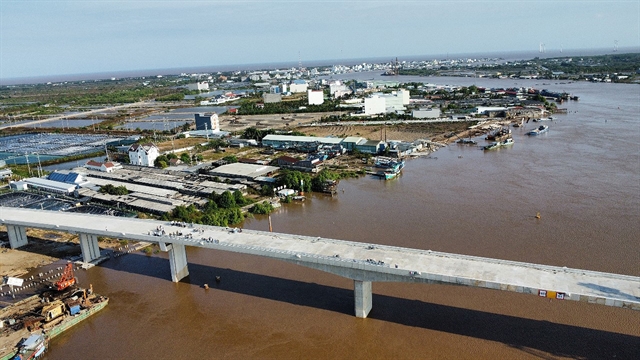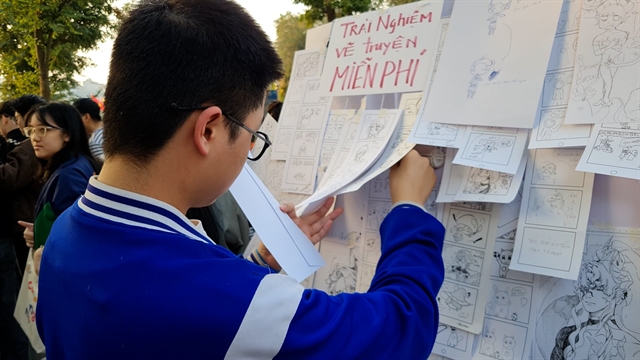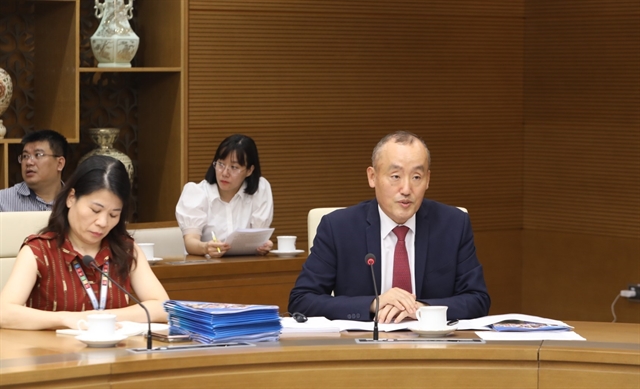 Society
Society

The health expert recommended Việt Nam to continue revising its restrictions and social distancing measures based on updated information.

|
| Kidong Park, World Health Organisation (WHO) Representative in Việt Nam, speaks at Tuesday's meeting in Hà Nội. — VNA/VNS Photo Văn Điệp |
HÀ NỘI — World Health Organisation (WHO) Representative in Việt Nam Kidong Park said he felt safe during his stay in Việt Nam, commending the country’s fast and effective response against the global COVID-19 pandemic.
He made the statement during a meeting with Deputy Prime Minister Vũ Đức Đam on Tuesday in Hà Nội regarding the pandemic situation.
The WHO official also expressed his appreciation towards Việt Nam for its close coordination, transparency and information sharing with the agency regarding its activities and measures to prevent and control the pandemic, including the case count, recovered cases and reports of no deaths so far.
Regarding the death of Việt Nam’s COVID-19 patient No.251, who doctors concluded had died from liver cirrhosis earlier this month after being declared free of the virus in mid-April after six tests, the WHO official stated that the agency was confident in Vietnamese expertise and conclusions after a thorough review of the case from the hospitalisation process and treatment regime to testing for the virus.
The details given were logical and there was no reason to doubt the Vietnamese doctors’ consultations, Park said, adding that this confidence stemmed from long cooperation between the WHO and international experts with the health sector, labs, preventive medicine centres and research units in Việt Nam.
The WHO representative also stressed that as long as there was no vaccine or effective drugs for the treatment of COVID-19, the pandemic might last many months, even years, and warned Việt Nam to remain on guard for a possible second wave of infections as other countries were still struggling to contain the disease.
The health expert recommended Việt Nam to continue revising its restrictions and social distancing measures based on updated information.
Deputy Prime Minister Vũ Đức Đam, for his part, thanked the WHO and related partners for their cooperation and assistance since the beginning of the pandemic and requested further and closer cooperation in the future.
Việt Nam was ready to share information and contribute its initiatives and experience in the fight against COVID-19 with the international community, especially poor and developing countries, Deputy PM Đam said.
He emphasised that Việt Nam was still carrying out measures to prevent cases arriving from overseas. All new arrivals to the country were being held in quarantine for 14 days and tested twice for COVID-19 during this period so the country could relax restrictions among the population to maintain the dual goals of kickstarting the economy while containing the disease.
Military, police and healthcare workers were not resting and always in a state of readiness, Đam continued.
Deputy Health Minister Nguyễn Thanh Long said Việt Nam was currently processing about 2,000 clinical samples a day, and 275,000 samples had been tested so far, with 288 found to be positive, most which were already held in Government-run centralised quarantine sites.
Long said that the risk of community transmission was currently very low as Việt Nam had entered 26 straight days without any new domestic community infections.
The surveillance system was still highly active to quickly detect any virus carriers in the community, especially in high-risk areas and communities, and promptly conduct measures to contain and suppress the outbreaks immediately.
At health facilities, patients who suffered from flu, coughs, fever or other COVID-19-like symptoms were getting tested for SARS-CoV-2, the health official said.
Việt Nam had also managed to produce many types of medicine, protective gear, ventilators and other medical items that were being used in the fight against COVID-19 pandemic around the world.
At the meeting, the National Steering Committee on COVID-19 Control and Prevention noted the responsibility taken by leaders of local governments to strictly carry out mandatory quarantining for all foreign experts and technicians who had been allowed into the country. — VNS